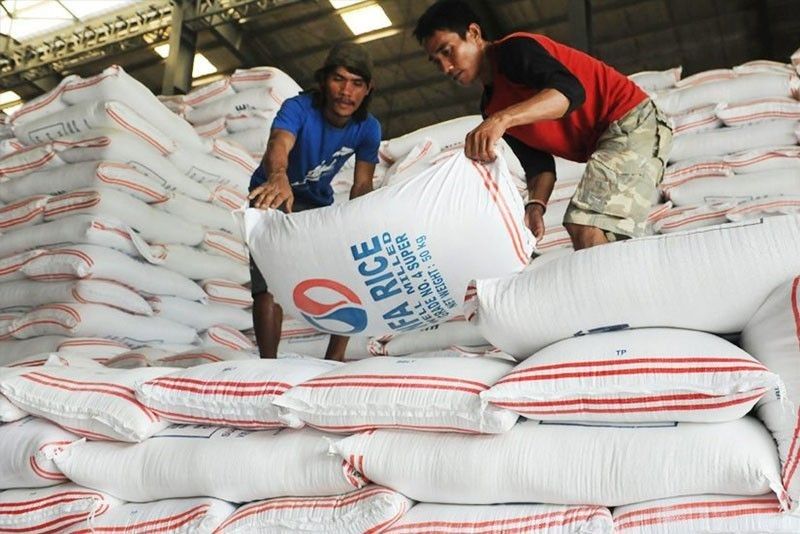COA flags NFA over rice allocation increase

MANILA, Philippines — The Commission on Audit (COA) has called out the National Food Authority for “giving undue advantage to selected retailers” in Ilocos and Cavite provinces by allowing them to procure thousands of bags of NFA rice in excess of their weekly allocations.
In the annual audit report recently uploaded on its website, COA said the NFA’s North district office and its provincial offices for Cavite, Ilocos Norte and Ilocos Sur did not properly observe the policy on rice distribution and retailing.
It pointed out that, under the NFA Standard Operating Procedure (SOP) GM-DN09 issued on Nov. 4, 1994, the “offices shall set a weekly allocation for each retailer in their respective areas to limit the quantity of rice or corn grits that shall be sold.”
The SOP provides that the weekly allocation shall be based on the retailer’s declared capital as against the NFA’s prevailing selling price, the supply and demand in the market, as well as the projected rice requirement in the area.
The COA cited the audit team’s review of issued authorizations and warehouse stock reports that showed the North district office allowing 21 retailers to withdraw from its warehouse rice exceeding by a total of 14,936 bags or 746,800 kilograms their weekly allocations for October to December last year.
It added that the Cavite office allowed 51 retailers to procure a total of 21,122 bags of NFA rice in October and November or about 45 percent (6,595 bags) in excess of their total weekly allocations for those months.
The Ilocos Norte provincial office also allegedly allowed 17 retailers to withdraw a total of 31,600 bags of rice from April to December of 2017, which exceed by 24,495 bags when reckoned from their total weekly allocations of only 7,105 bags.
As for the Ilocos Sur office, COA said 19 retailers were allowed to withdraw 3,009 bags rice beyond their weekly allocations for October to December.
“The grant of excess allocations to selected retailers resulted in un-equitable rice distribution, thereby defeating the intention of the allocation system and giving undue advantage to these retailers which could lead to diversion of stocks,” the COA said.
In reply, the NFA North district office said in its report that the sale of rice to some accredited retailers beyond the allocations “could be attributable to the need or requirement of the populace in particular areas, number of existing outlets in the area and the prevailing market situation (high prices of commercial rice).”
The Cavite office, on the other hand, said this was meant “to stabilize the supply and prices of commercial rice in the market” as the NFA Ilocos office commented that the amount of rice procured by retailers in Ilocos Norte was based on their “capitalization and/or storage capacity, whichever is lower, and not on the weekly allocation itself.”
But COA maintained in a rejoinder that the NFA must observe its established SOP on rice distribution and retailing and that “any increase in the weekly allocations of retailers (should) be properly authorized, documented and evaluated to avoid giving undue advantage to selected retailers and diversion of stocks.”
Not acceptable
Rep. Jose Panganiban, chairman of the House committee on agriculture and food, said he already sent letters to the Department of Agriculture (DA) and National Food Authority (NFA) to explain why several tons of imported rice were found to have been ridden with mold, noting that rice from Thailand and Vietnam were apparently infested with wood-destroying insects.
“It’s not acceptable, that’s irresponsible. I’m not in favor of the NFA’s statement that people can eat rice ridden with molds,” the ANAC-IP party-list representative told reporters, noting that both agencies have to explain why they are saying that such rice can still be eaten.
Davao City Rep. Karlo Nograles, who heads the House appropriations committee, also challenged the NFA under Jason Aquino’s leadership to act on rising rice prices and the shortage of NFA rice in the market.
“The NFA administrator is right. We legislators should go out in the field and really look into the problems. It gave us an opportunity to go to our markets and learn firsthand about the prices and supplies of rice – and what I discovered is very worrisome,” he said. – With Delon Porcalla, Evelyn Macairan, Ding Cervantes
- Latest
- Trending


























